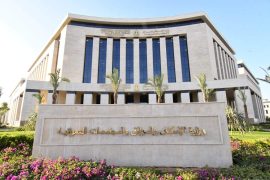Minister of Housing, Utilities, and Urban Communities Assem El-Gazzar has reviewed the general framework of the national strategy for urbanism and sustainable green construction, Invest-Gate reports.
This review took place during his chairmanship of the committee, formed by the Prime Minister’s decision, which includes representatives from relevant authorities.
The committee’s goal is to develop a national strategy that defines priorities, mechanisms, and targets for the implementation and improvement of green urbanism and building practices. The strategy aims to leverage the experiences of different countries in this field and utilize environmentally friendly building materials.
El-Gazzar explained that during the meeting, there was a discussion on the interactions and common aspects between the upcoming national strategy for urbanism and sustainable green construction and other relevant national strategies.
The aim was to build upon the achievements made within the framework of these strategies. The ultimate objective is for sustainable green urbanism and building practices to become the prevailing characteristic of urban planning and construction in Egypt.
This would lead to effective environmental management in construction, emphasizing the efficient use of resources and energy, as well as compatibility and harmony with the surrounding environment. By doing so, the state can preserve its resources, positively impacting the economic situation of its citizens, fulfilling their aspirations, and improving their quality of life and future prospects.
El-Gazzar added that green construction is based on managing and optimizing water and energy consumption, promoting sustainable building materials, integrating renewable energy sources, establishing sustainable urban mobility systems, ensuring quality in both the internal and external built environment, and implementing comprehensive waste management.
These pillars contribute to reducing resource consumption (energy, water, construction materials), mitigating the impacts of climate change, enhancing flexibility and adaptability to climate change, and achieving low-emission economic growth in the urban and green construction sector.
















